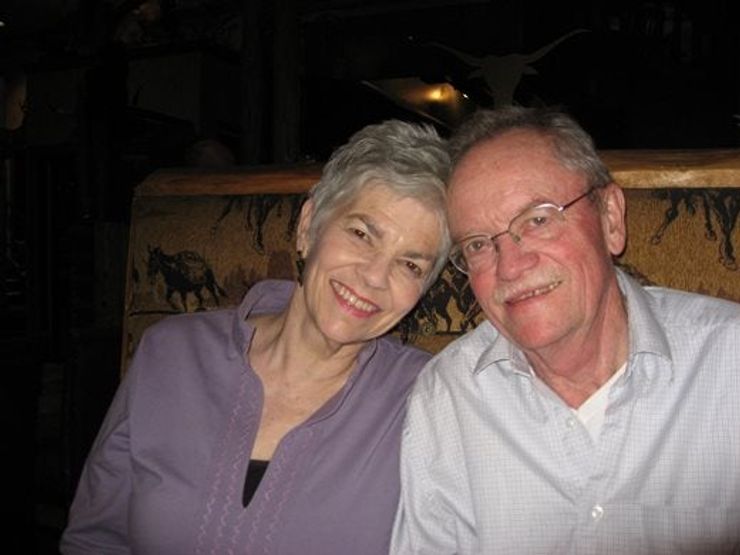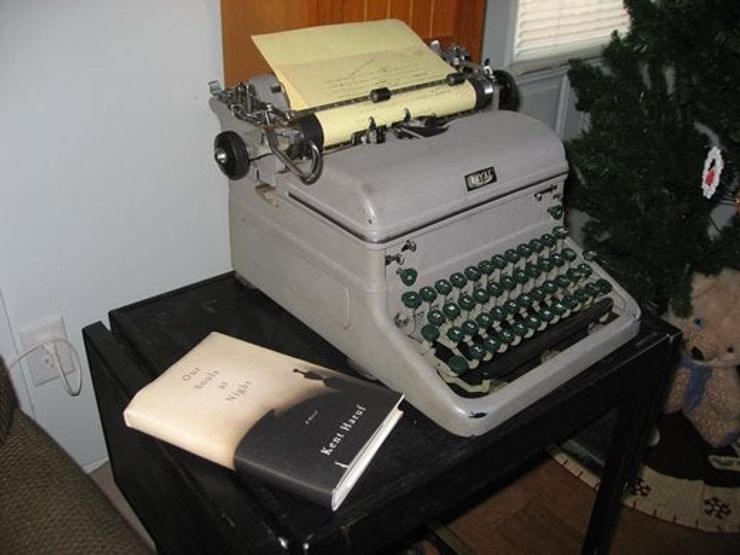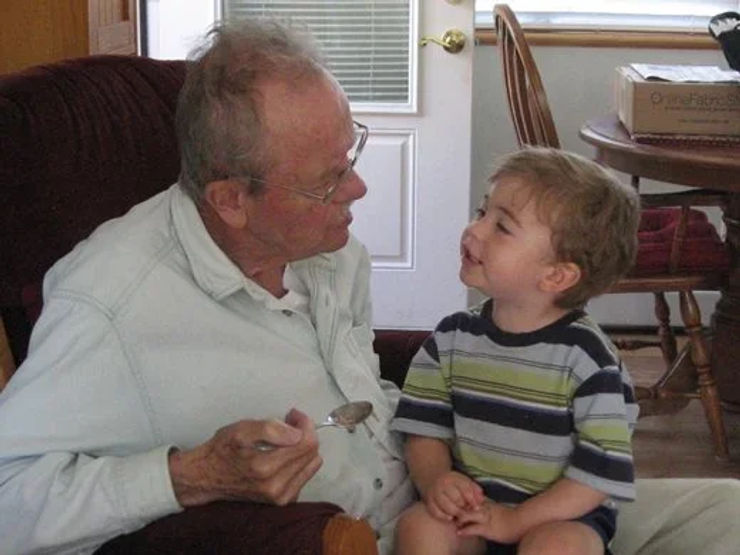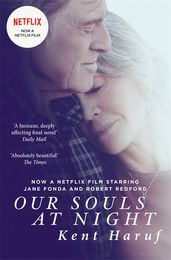Kent Haruf’s wife Cathy on Our Souls at Night
Kent Haruf's wife Cathy on Kent’s writing and what Our Souls at Night means to her.

Just before Christmas 2014, we received a very special submission: a new novel by Kent Haruf, the author of the Plainsong books. Our Souls at Night is an exquisite book made all the more poignant by the fact that Kent very sadly passed away just a week after we received the book, and two days before the final copyedit was finished. We spoke to his wife, Cathy, about Kent’s writing and what this book means to her.
The Netflix original film adaptation of Our Souls at Night, starring Robert Redford and Jane Fonda premieres on the platform on 29th September 2017. Watch the film trailer below.
What was the inspiration behind Our Souls at Night?
Kent said to me at the end of April, 'I am going to write a book about us.' His favorite time of all was when we would lie in bed at night, hold hands and talk about everything – living, dying, our spirits, our lovely children, our dear friends, this story, my hospice work, funny happenings, our great years together, frustrations, resentments, our feelings for each other and whatever went on that day. (It was very important to Kent and me that we stay current with each other about everything.)
He said he wanted to write about the idea of two old people talking at night. Our Souls at Night is a love story about a man and a woman who decide to live from their truth and authenticity in the face of criticism and judgment.

Can you talk a bit about the writing of it?
Kent was feeling a little better in the middle of April 2014 and he needed to be doing something. He tried writing a short story and said, 'That didn’t go anywhere'. Then he came in one day and said, 'I am going to write a book about us.' On the morning of May 1, he took himself and his oxygen tank out to his writing shed and wrote a chapter a day for 45 days. He felt a great satisfaction. He was so pleased and every day he would come in for lunch and say, 'Another chapter!' It usually took him six years to write a novel and he was utterly astounded that he could write a chapter each day. But he knew he was on a deadline and he was determined to finish it before he died.

He typed on an old Royal upright typewriter. When he typed his first draft of each chapter he would pull a stocking cap down over his eyes and write “blind” so he wouldn’t be distracted by spelling, syntax or punctuation. He then wrote notes all over that first draft and retyped it double-spaced on his favorite old yellow paper. By the middle of August he said he was ready for me to read it. I read the manuscript, entered it into the computer and for the next month made whatever changes he wanted. And proofread it over and over again. In September 2014, we emailed it to his editor in the USA, Gary Fisketjon, at Knopf, with a note, 'Dear Gary, Here’s little surprise for you. Love, Kent.' The manuscript went back and forth for several weeks and three days before he died Kent said that I would have to do the final copyedit. So two days after he died it was finished and sent off.
What does the publication of Our Souls at Night mean to you?
The most important thing to me was that Kent had such a good time writing this book and that he was able to finish it before he died. He worked on it as long as he could, right up to the last minute. He was passionate about writing and finishing it and sending it off to his editor, Gary Fisketjon – as a surprise. And it certainly was a surprise for Gary.
Kent and I had such a good time discussing the story. He didn’t want anyone to know he was writing in case he wasn’t able to finish it – and he really wanted to be around to see how the book was received. I think Kent probably is aware of all that. Our Souls at Night is a great gift to me.

How would you describe Kent’s characters?
As anyone who has read Kent’s books knows, his characters come in all varieties. The protagonists are layered. No character is all good or bad. They are all human, behaving in the ways we all do – with fears, love, meanness, joy, sadness.
Kent himself felt very strongly the hurt and sadness in the world. He was a very tender, loving and sensitive person, which of course, comes out in his characters.
Families are at the heart of Kent’s novels. What was his understanding of the word?
In Plainsong and subsequent books, Kent wrote about family as kindred spirits; people who love each other, help and support each other – those we choose to include and embrace as family in addition to those we’re biologically related to. That was definitely how he felt and lived.

As well as writing his own books, Kent taught creative writing. What advice did he give his students?
Kent would tell his creative writing students, 'There is no lack of talent for writing. But there is a lack of talent for hard work. Read everything you can get your hands on. Read, read, read. (Kent himself greatly admired Faulkner, Hemingway and especially Chekhov.) Write and write and write. Every day. Get black on white. Write what you know. Don’t let other people overly influence your own voice. Listen to instructors or teachers but then let it all go and be true to your own vision and voice.'
Kent didn’t believe in 'inspiration' when it came to writing a novel. It was hard work; showing up every day at his desk whether he felt like it or not; he didn’t want to take the chance that he might miss something important.
Our Souls at Night

Our Souls at Night is the final book from the Folio Prize-shortlisted author of Plainsong, Eventide and Benediction, Kent Haruf, and has been developed into a Netflix original film starring Robert Redford and Jane Fonda.


